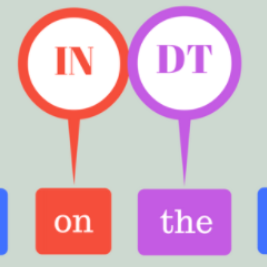Syntactic annotation of corpora in the form of part-of-speech (POS) tags is a key requirement for both linguistic research and subsequent automated natural language processing (NLP) tasks. This problem is commonly tackled using machine learning methods, i.e., by training a POS tagger on a sufficiently large corpus of labeled data. While the problem of POS tagging can essentially be considered as solved for modern languages, historical corpora turn out to be much more difficult, especially due to the lack of native speakers and sparsity of training data. Moreover, most texts have no sentences as we know them today, nor a common orthography. These irregularities render the task of automated POS tagging more difficult and error-prone. Under these circumstances, instead of forcing the POS tagger to predict and commit to a single tag, it should be enabled to express its uncertainty. In this paper, we consider POS tagging within the framework of set-valued prediction, which allows the POS tagger to express its uncertainty via predicting a set of candidate POS tags instead of guessing a single one. The goal is to guarantee a high confidence that the correct POS tag is included while keeping the number of candidates small. In our experimental study, we find that extending state-of-the-art POS taggers to set-valued prediction yields more precise and robust taggings, especially for unknown words, i.e., words not occurring in the training data.
翻译:以部分语音(POS)标记形式对公司进行同步描述是语言研究和随后自动自然语言处理(NLP)任务的关键要求。 这个问题通常使用机器学习方法解决, 即用足够大量的标签数据对POS塔格器进行培训。 虽然POS标记问题基本上可以被视为现代语言的解决方案,但历史公司标记问题变得困难得多, 特别是由于缺乏本地语言语言和训练数据的广度。 此外, 多数文本没有我们今天所熟悉的句子, 也没有共同的拼写法。 这些不正常之处使得自动POS标记的任务更加困难和容易出错。 在这种情况下, 而不是强迫POS塔格预测和致力于单个标签, 应该能够表达其不确定性。 在本文中,我们认为POS标签标签在定值预测的框架内, 使得POS标签能够通过预测一套候选人的POS标记来表达其不确定性, 而不是猜测一个未知的词汇。 我们的精确的标值是, 保持一个高信任度的标值, 我们的标值是高的标值 。



